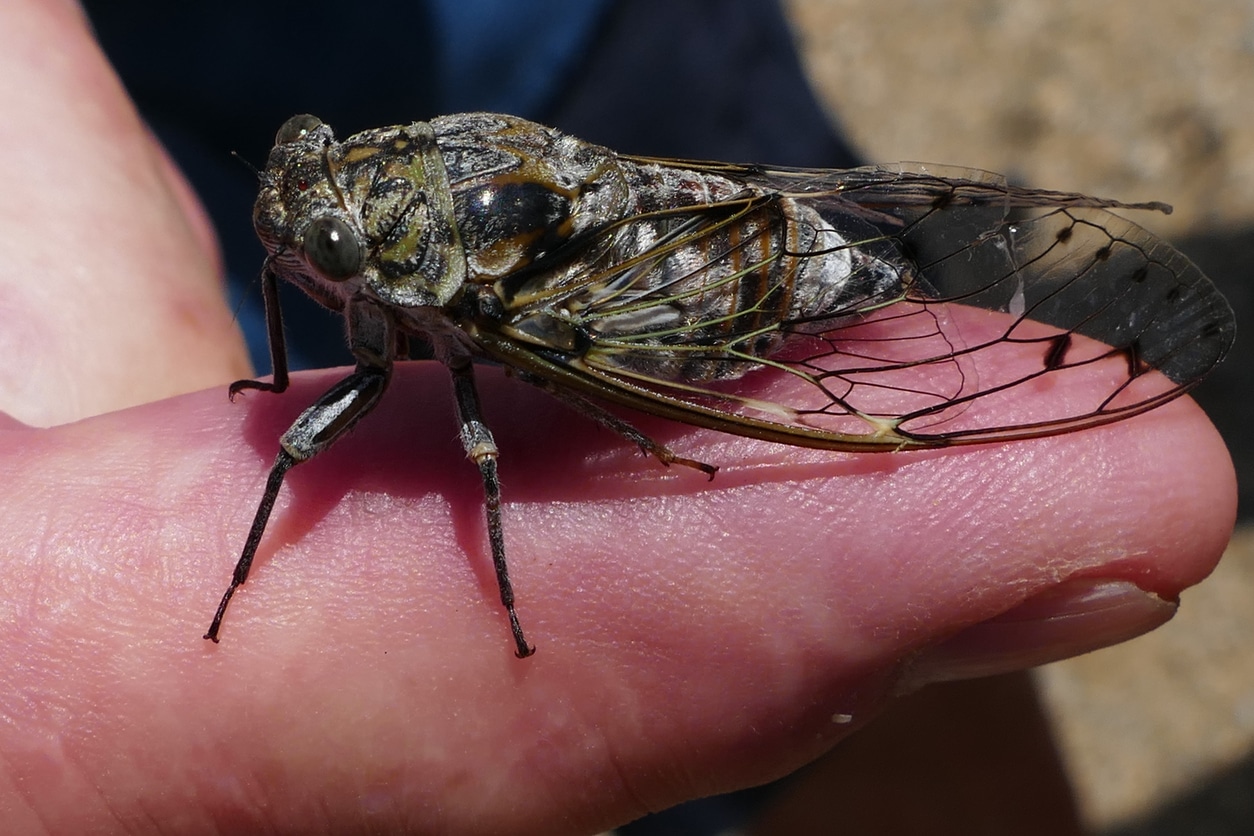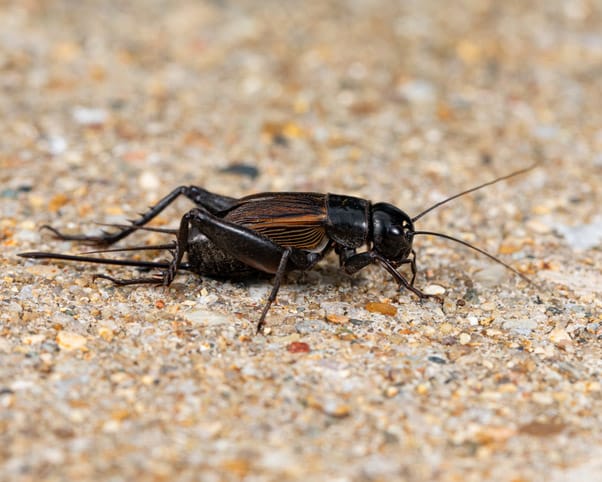Crickets
Crickets are another form of insect that occasionally needs a bit of population control. While some might love the summer season cricket choir, not everyone is a fan of their chirping song. When you want to nix the noise, you can count on the Majestic Pest Control team to make cricket control a reality around your home.
There are at least 900 different species of crickets documented around the world. These insects by themselves are not a threat to health in any real way — except their inherent ability to offer quite the “jump-scare.” Even so, the leaping little creatures are not always welcome in or around your home.
Some of the most common types of cricket include house crickets, field crickets, and ground crickets. There are also spider crickets, also known as cave crickets, and a species known as camel or humpback crickets. Most cricket species are omnivorous, meaning they will happily eat just about anything in reach — even other crickets!
It is essential to know that not every species of cricket can make the chirping song that many people typically associate with the insect. Additionally, while some crickets might be silent, they can still occasionally attract this type of predator while living in your home — namely spiders, birds, and even raccoons! The cricket itself might not create much damage on its own, but the creatures that feed upon it can often cause a much bigger problem.
Crickets are a hugely common feeder insect for many wild and owned animals in every region around the world. Owners of birds, snakes, lizards, spiders, and other animals may be very familiar with the immense cricket industry. And that is not all; crickets are also a long-trusted food source for some humans!
However, we understand that not everyone is on the same page when it comes to crickets, and we are here to help. Trust our expert knowledge and experience to clear the crickets from your home. The Majestic Pest Control team has the right cricket control plan for your pest control needs.


How We Eliminate Crickets
Cricket Facts
- The pet-based food demand for crickets has driven the creation of several hugely profitable insect breeding businesses around the world. The most used in pet-food breeding is the common house cricket, which is also known as Acheta domesticus. Surprisingly, this is also a popular cricket species for human consumption. It can be dry-roasted as a quick snack or even turned into an insect-based high protein flour.
- Crickets can be pets themselves. Some cultures, mainly Chinese, kept crickets as pets for their song that indicated luck. These pet crickets were kept in cages, jars, or even specially designed gourds that acted as natural amplifiers. Some historic cricket owners opted to put their pets to the spectacle of a physical test, placing them in cricket fighting rings for entertainment and betting.
- Only the males of certain cricket species can create the chirping song that many people associate with crickets in general. For these noisier species, the chirping sound is a way to share their ability to mate or to announce that they have bred with each other. The ability to chirp can also be a drawback to these crickets, as one of their smaller predators, the parasitic fly, has learned how to hone in on the cricket song to make its attack and lay invasive larvae.
- Crickets are most active through the night, making them nocturnal insects. It’s no wonder why people can get frustrated hearing them chirp from a hidden corner of their bedroom as they try to get some sleep. Speaking of a cricket chirping, a man named Amos Dolbear calculated a formula to find the temperature using the number of chirps a cricket makes over one minute. Since then, the formula breaks down to taking the number of chirps from a single cricket over fifteen seconds and adding the resulting number to the number forty to determine the general temperature in Fahrenheit.
- Crickets do not make their music the same way that grasshoppers do. While grasshoppers use their hind legs to rub their forewings to make their song, crickets rub their forewings together to make their chirp. The cricket’s forelegs have an entirely different use from an interesting addition of their hearing organs (tympanal membranes).
Cricket Control Benefits
Cricket Treatment Benefits
An infestation of any kind of insect in your home cannot be ignored. They pose a health hazard to your family and the very structure of your home.

